January 2020 Metrics Report
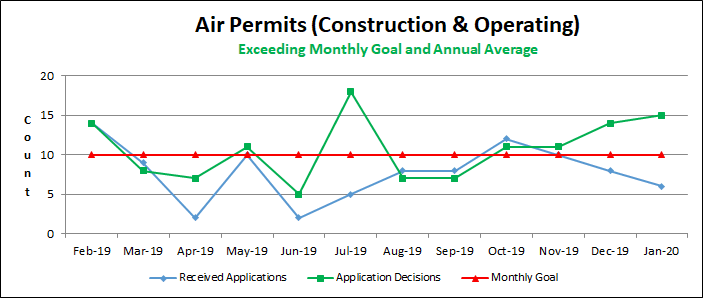
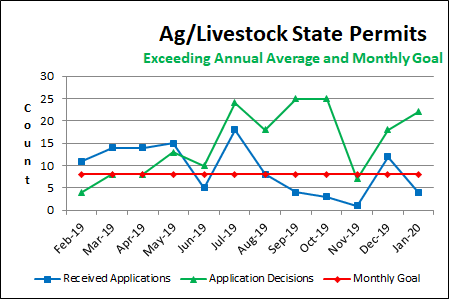
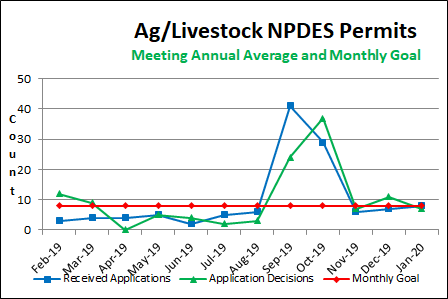
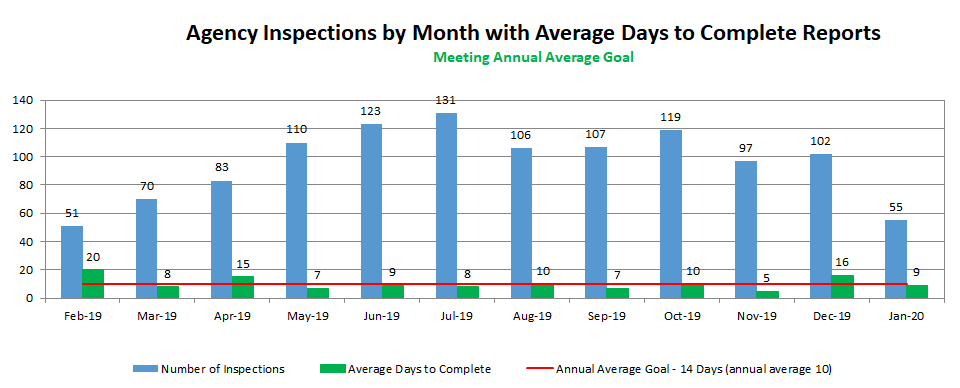
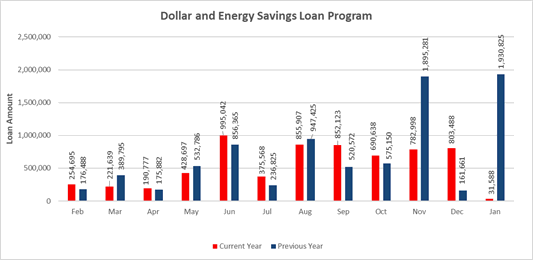
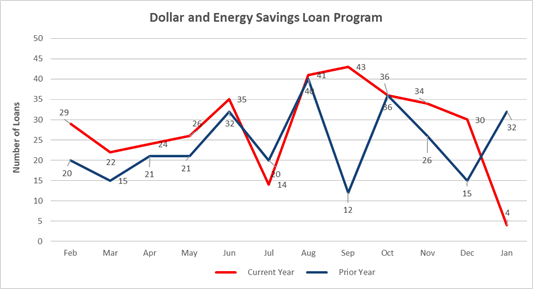
| LOW INTEREST DOLLAR & ENERGY SAVINGS LOAN PROGRAM | ||||
| Period Ending | Loans | Total Improve. Cost | Eligible Energy Efficiency Improve. | Energy Office Loan |
| Month ending 01/31/20 | 4 | $41,602 | $41,602 | $31,588 |
| Prior Month ending 12/31/19 | 30 | $965,258 | $964,858 | $803,488 |
| Quarter ending 03/31/20 | 4 | $41,602 | $41,602 | $31,588 |
| Fiscal Year ending 06/30/20 | 202 | $6,283,399 | $5,710,048 | $4,392,310 |
| Fiscal Year ending 6/30/19 | 317 | $12,357,673 | $11,736,699 | $7,739,115 |
| Total Energy Office Loans Outstanding Jan. 31, 2020 | $36,051,183 | |||
| Total Energy Office Loans 1990 thru Jan 31, 2020 | $181,332,156 | |||
Emerging Risks/Issues:
- Through a Kaizen event, NDEE worked with other members of the Water Wastewater Advisory Committee (WWAC), including USDA and Economic Development, to maximize funding to Nebraska communities for water infrastructure improvements. This group has developed a new process that is going through a six-month trial period.
- NDEE has scheduled a public hearing and information session for Thursday, Feb. 20 in Nebraska City. The hearing is to accept comment regarding a Plantwide Applicability Limitation (PAL) air permit for OPPD’s Nebraska City plant for the pollutants sulfur dioxide (SO2) and oxides of nitrogen (NOx). This would be the first PAL permit issued in Nebraska. PAL permits are structured to allow changes in operation without going through the permit modification process, as long as the permittee complies with a facility-wide cap on actual emissions for the specified pollutant.
Accomplishments:
- The Energy and Assistance Division (EAD) approved a reimbursement of $734,901 through the Volkswagen State Trust program to Omaha Metro Transit Bus to replace two diesel transit buses with new Compressed Natural Gas (CNG)-fueled rapid-transit buses. These buses meet much stricter nitrogen oxide emissions standards than current new diesel buses, and therefore will have much lower emissions than the diesel buses they’re replacing.
- The remediation section participated in a January 30th meeting with the United States Department of Agriculture (USDA), City of York and Upper Big Blue Natural Resources District to work on a draft Nebraska Voluntary Cleanup Program remedy proposal for a York USDA grain bin site. If there are no objections from the City of York or NRD within the next few weeks, NDEE will ask the USDA to prepare a Remedial Action Plan (RAP) with the proposed remedy presented. After approving it, NDEE will put it on a 30-day public notice. The RAP is expected to be submitted later this year and remedy construction is expected to begin in 2021.